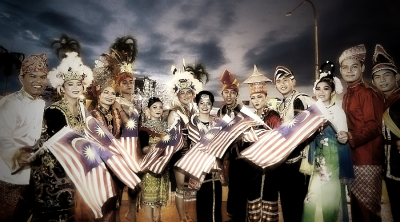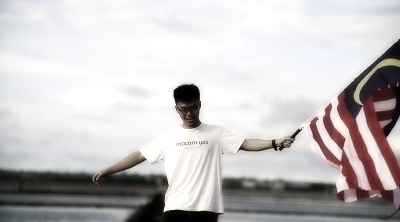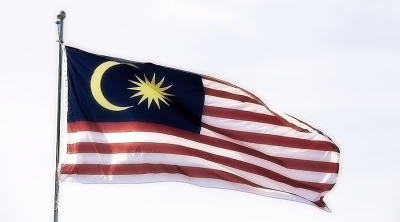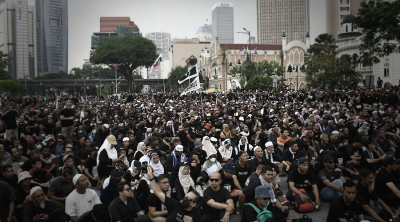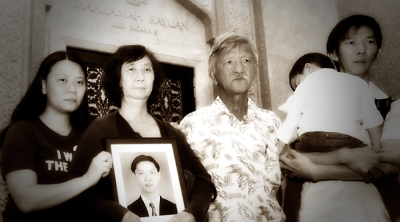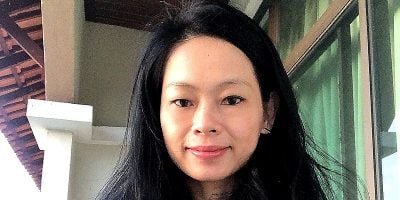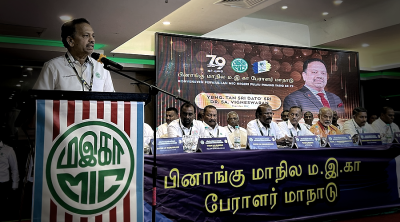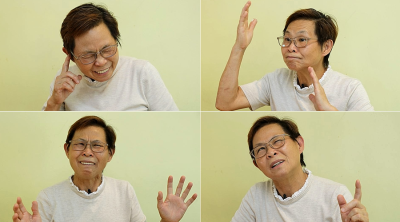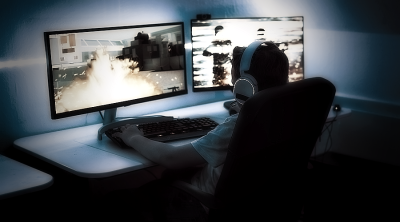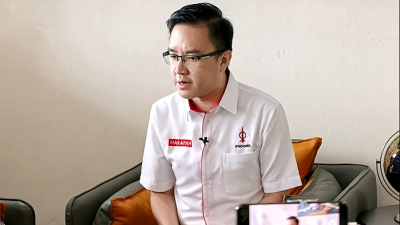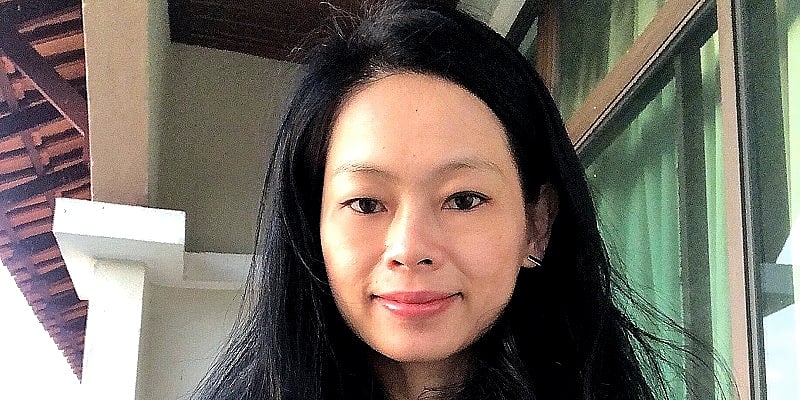
Last week, as Malaysians came together to celebrate Chinese New Year, I witnessed something that should have been entirely unremarkable – yet, in today’s Malaysia, it feels almost subversive.
A Malay-Muslim neighbour, out of respect for his Chinese friend’s family traditions, lit an incense stick and placed it at their ancestral altar.
It wasn’t a grand gesture, just a quiet act of courtesy, a simple way of honouring a friend’s heritage without compromising his own beliefs.
But in an era where race and religion are being deliberately distorted into political tools, moments like this no longer exist in isolation.
Had a similar scene gone viral on social media, the outrage machine would have kicked in within hours – comment sections turning into battlegrounds, accusations flying that such an act “betrays” Islamic principles.
What was once an organic part of Malaysia’s social fabric is now repackaged as controversy, as if our multicultural harmony itself is an illusion that must be shattered.
And that’s the real danger: this is not happening by accident.
The increasing hypersensitivity around race and religion isn’t a natural evolution of societal values – it’s being stoked, amplified, and weaponised by those who benefit from division.
Politicians, social media influencers, and certain religious groups have mastered the art of misdirection, using identity politics as a smokescreen to distract from governance failures, economic struggles, and the real issues affecting ordinary Malaysians.
The politicisation of race and religion: a manufactured crisis
Malaysia’s multiracial and multireligious identity has long been our greatest strength – but also an easy target for exploitation.
For decades, coalition politics operated on a system of power-sharing, an imperfect but functional way to manage diversity.
But as political competition intensifies, race and religion have transformed into weapons of survival – tools to rally bases, silence dissent, and create an illusion of crisis where none exists.
Since the 15th General Election, we have seen this strategy play out in real time.
The opposition have framed Malay-Muslim identity as being under siege, accusing the unity government of sidelining Malay and Islamic interests.
In response, Anwar’s administration – despite its multiracial platform – has had to walk a tightrope, occasionally making concessions to conservative forces to avoid backlash.
This cycle of political posturing has real consequences. Every cultural event, business decision, or social practice is viewed through the distorted lens of race and religion, turning minor issues into full-blown national debates.
The KK Mart socks controversy, halal certification disputes, and even international concerts – none of these should have been existential crises. Yet, they were deliberately framed as threats to national identity, not because they actually posed any danger, but because they serve the interests of those who profit from division.
Moral policing and religious exclusivity: The shrinking of public space
As identity politics intensifies, religious conservatism is tightening its grip on both policy and social norms.
What was once personal choice is now increasingly subject to public scrutiny and state regulation.
One of the most alarming developments is the push to regulate how Muslims participate in interfaith events – a move that threatens to dismantle Malaysia’s long-standing tradition of cultural exchange.
Rather than treating interfaith interactions as a natural part of a diverse society, new protocols seek to control them, turning everyday social engagements into state-monitored activities.
Even Selangor’s Sultan Sharafuddin Idris Shah has pushed back against this rising trend, warning that such restrictions are not only unnecessary but dangerous.
His firm stance highlights what should be obvious: Malaysia does not need more barriers between communities.
But the more these artificial divisions are enforced, the more they embolden religious hardliners – while putting moderate Muslims in an impossible position, forced to choose between their personal beliefs and increasing societal pressure.
This creeping exclusivity doesn’t just affect interfaith relations.
Businesses, too, are feeling the impact, as halal certification disputes morph from regulatory concerns into battlegrounds for national identity.
Cultural events, music festivals, and public expressions of diversity are increasingly being censored – not for any substantive reason, but because a louder, more conservative minority has successfully weaponised religion as a tool for control.
But make no mistake – this isn’t just a burden for non-Muslims. Moderate Malays are also feeling the pressure.
Many now find themselves forced into stricter social norms they do not necessarily subscribe to, while young Malaysians – both Malay and non-Malay – are growing increasingly disillusioned with a system that prioritises sectarian policing over personal freedom.
The more this continues, the more public spaces shrink, and pluralism erodes – replaced by a climate of fear and exclusion.
Will we see through the illusion and fight for a future built on unity, not division?
The real cost: Governance paralysis, economic stagnation, and global isolation
The obsession with race and religion in Malaysian politics is not just a distraction – it is actively damaging the country’s future.
The most immediate impact is governance paralysis.
With identity-based controversies dominating public discourse, crucial issues – like the rising cost of living, stagnant wages, and education reform – are sidelined.
Instead of focusing on structural improvements, the government is trapped in a cycle of reactive firefighting, wasting time and political capital on damage control instead of meaningful policy change.
At the societal level, the deepening racial and religious divide is eroding social trust.
Malaysians who once interacted seamlessly now find themselves walking on eggshells, uncertain of what is deemed “acceptable” by the ever-shifting standards of political and religious gatekeepers.
The Malaysia that once prided itself on its multiculturalism is now at risk of becoming a nation of suspicion and self-censorship.
The economic consequences are equally severe. Foreign investors and global talent do not want to operate in an environment where policy is dictated by religious sensitivities rather than economic pragmatism.
Skilled Malaysians – both Malay and non-Malay – are increasingly seeking opportunities elsewhere, in places where diversity is embraced as an asset rather than treated as a liability.
If Malaysia continues down this path, the long-term result is clear: we will become more insular, more polarised, and less competitive. And in a globalised world, that is a price we simply cannot afford to pay.
Reclaiming Malaysia’s reality: Breaking the illusion of division
To move forward, we need to see through the smoke and shatter the mirrors.
The first step is recognising that Malaysia is not inherently divided – division is being manufactured for political gain.
For too long, fear-based identity politics has been used as a tool to distract from governance failures and economic stagnation.
It is time for political leaders to shift the narrative away from racial and religious insecurities and instead focus on policies that drive national progress, economic stability, and effective governance.
Rather than exploiting identity for short-term political advantage, leaders must commit to uniting Malaysians around common goals – education reform, job creation, and ensuring Malaysia remains competitive on the global stage.
The media, too, has a crucial role to play. In an era where outrage generates clicks, responsible journalism is more important than ever.
News outlets must resist the temptation to sensationalise identity-based controversies simply for engagement.
Instead, reporting should aim to foster informed dialogue and bridge divides, rather than reinforcing them.
This requires a conscious effort to move beyond reactionary headlines and provide deeper, more thoughtful analyses that prioritise facts over manufactured outrage.
At the same time, civil society must step up to create more spaces for interfaith and intercultural understanding.
Community-driven initiatives, open dialogues, and inclusive public forums can counter the divisive narrative that Malaysia’s diversity is a problem rather than an asset.
These efforts are essential in reminding Malaysians that our shared history is built on coexistence, mutual respect, and cultural exchange – not isolation and suspicion.
By actively engaging in these spaces, citizens can push back against the forces that seek to divide us and reclaim the pluralism that has always been central to Malaysia’s identity.
But more than anything, this is about us, as Malaysians. We have a choice: continue to be manipulated by illusions, or reject the artificial divisions being imposed upon us.
That simple act I witnessed during Chinese New Year – a Muslim neighbour lighting incense out of respect – should not be controversial. It should be a reminder of who we are at our best: a nation where mutual respect comes naturally, not politically policed.
If we don’t reclaim that reality now, we risk losing Malaysia as we know it.
The question is: will we allow ourselves to be blinded by the smoke, or will we see through the illusion and fight for a future built on unity, not division?
(Khoo Ying Hooi, PhD, is an Associate Professor of International Relations and Human Rights at Universiti Malaya. Her work spans human rights research, diplomacy, and policy engagement across ASEAN and Timor-Leste, along with active contributions in editorial and advisory capacities.)
ADVERTISEMENT
ADVERTISEMENT






